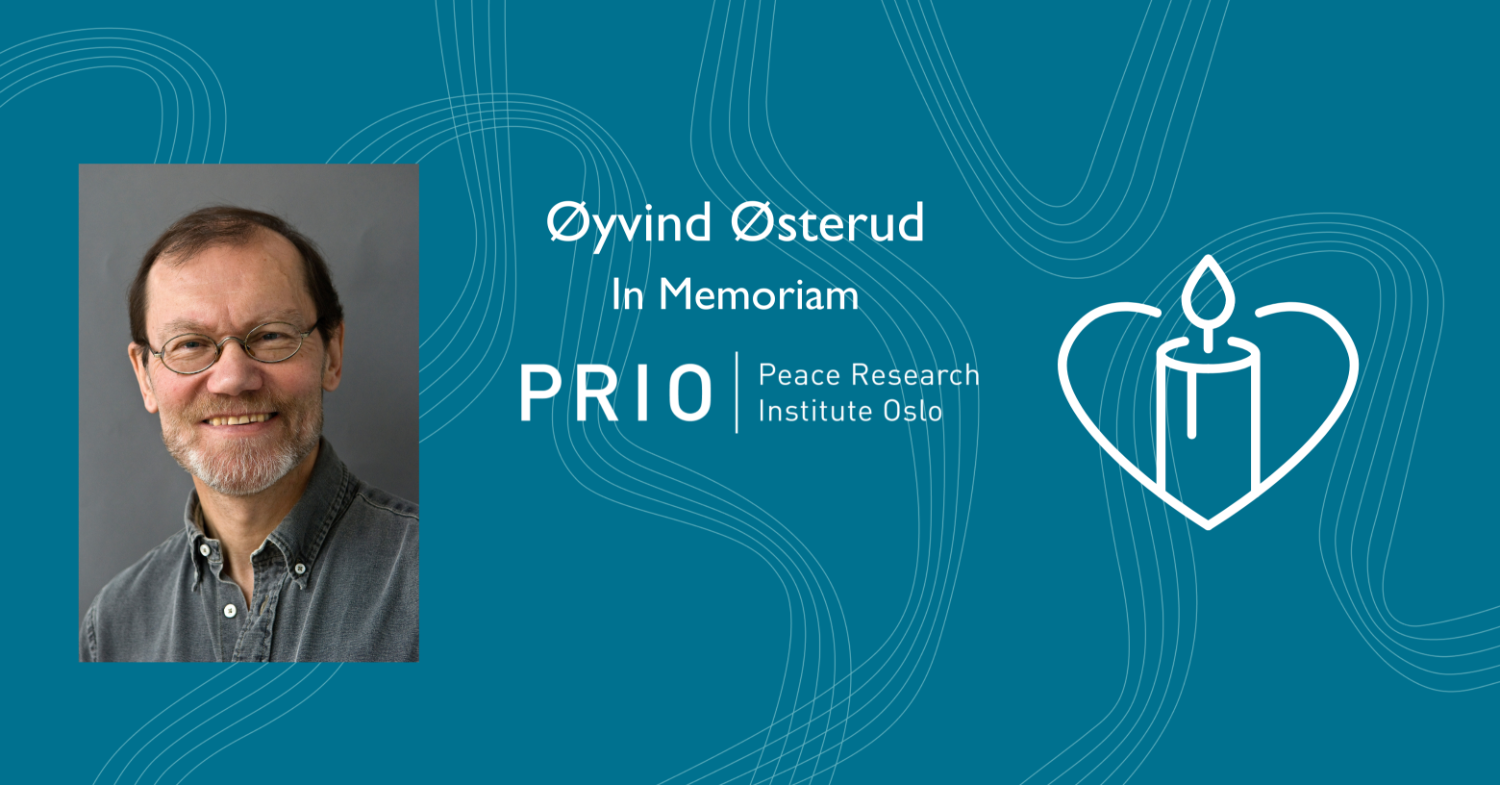
Professor of political science Øyvind Østerud, who died from a brain tumor on 23 June 2025, will be deeply missed at the Peace Research Institute Oslo (PRIO). His strongly analytical mind gave us a chance to test our norm-based ideas against his realist logic. He had an extraordinary capacity for condensing complex theory into easily understandable reasoning – most often in the Norwegian language.
The Department of Political Science at the University of Oslo was founded in 1957, two years before PRIO was established as a section of the Institute of Social Research. Belonging to the second generation of Norwegian political scientists, professor Østerud profoundly influenced his discipline. He served as director of the huge Norwegian Power and Democracy Study (Makt og demokrati-utredningen) 1998–2003 and as praeses in the Norwegian Academy of Science and Letters 2008–11.
My last chance to dialogue with him in public was a year ago, when he generously served as a discussant at the launch of my Kort introduksjon til Vietnamkrigen (Short Introduction to the Vietnam War). What I best remember is how he reminded me of Professor Hans Morgenthau’s realist warnings in 1964–65 against Lyndon B. Johnson’s escalation of the war in Vietnam. Realism can serve on the side of peace. It feels odd that professor Østerud should die at the very moment when another US president bombed Iran.
PRIO’s relationship with Øyvind Østerud began on a sour note. In 1969, PRIO’s main founder Johan Galtung (1930–2024) had taken up a new professorship of conflict and peace research at the University of Oslo. This was a source of pride for PRIO and the whole peace research community. However, after just eight years, Galtung resigned from his professorship in 1977 in a quest to transcend his Norwegian nationality and become genuinely cosmopolitan. The 33-year-old Øyvind Østerud, who had got his PhD from the London School of Economics in 1974, audaciously applied for the vacant position – and got it in 1980 ahead of several qualified rivals from the Nordic peace research community. This hampered PRIO’s connection with the University of Oslo and contributed to its long-term image as a down-town activist hippie centre, whose researchers were forced to spend significant amounts of time in plenary meetings with full decision-making power. Øyvind Østerud further soured the separation by obtaining a change in his title. Instead of becoming a professor of conflict and peace research, he became one of international conflict studies. No peace. At PRIO this caused resentment.
The rest is a history of gradual détente and rapprochement. PRIO on its side went through a series of reforms from the 1980s onward to improve its academic credentials and ingratiate itself with the powers that be. Østerud meanwhile developed a formidable interest not just in centre-periphery relations, democracy and power but also in war and peace. In 2004, when I served as director of PRIO and my mentor and fellow historian professor Helge Pharo stepped down as chair of the PRIO Board, I saw a chance to further strengthen PRIO’s academic credentials by having Østerud as the new chair. My wish was fulfilled. He accepted and acted the way I had hoped for. He was not the kind of chair who says yes to everything the director wants. He asked critical questions about all important matters on the Board’s agenda and warned against attempts by me or other staff to offer ill-founded statements in public or engage in partisan politics. This helped PRIO on its way to hosting a Centre of Excellence on Civil War and developing widely recognized research groups on essential topics such as migration, just war theory, prediction and climate change.
As a political scientist, Østerud made himself loved among historians by taking great interest in factual history and causal explanation. In 2010–12, his take on the history of warfare led me to engage him in a friendly quarrel in the Oslo University magazine Apollon. I reviewed his book Hva er krig? (What is War?), where he followed the British scholar Mary Kaldor’s widely read New and Old Wars (1998) in establishing a trend of change in the aftermath of the Cold War from large wars between states and uniformed soldiers to “new wars” with unclear dividing lines between civilians and soldiers as well as between crime and warfare. I argued in line with John Mueller’s book The Remnants of War (2004) that the so-called “new” wars had always been there. What happened after the Cold War was that researchers discovered the old internal wars and called them “new” because of a transient scarcity of wars between states. That quarrel has since lost some of its salience with the emergence of large "new old wars” in Iraq, Ethiopia, Syria and Ukraine and the risk that the great powers may once more sleepwalk into world war.
Østerud’s analytical engagement with war and peace was further inspired by his long service as a permanent consultant to the Norwegian Nobel Committee. I think historians will find his reports on the more or less worthy candidates to constitute a treasure trove of engaged analysis once the mandatory fifty years of confidentiality have passed and the Nobel Institute Library makes them publicly accessible.
We are sad at our loss but mix sorrow with a sense of gratitude for the memories and publications that Øyvind has left behind.
This obituary was written by Stein Tønnesson, former director of the Peace Research Institute Oslo.





